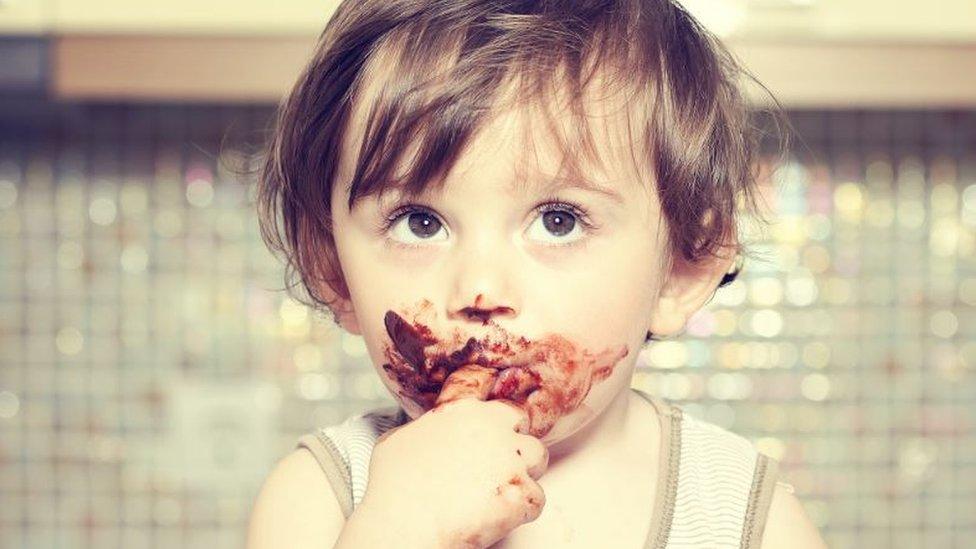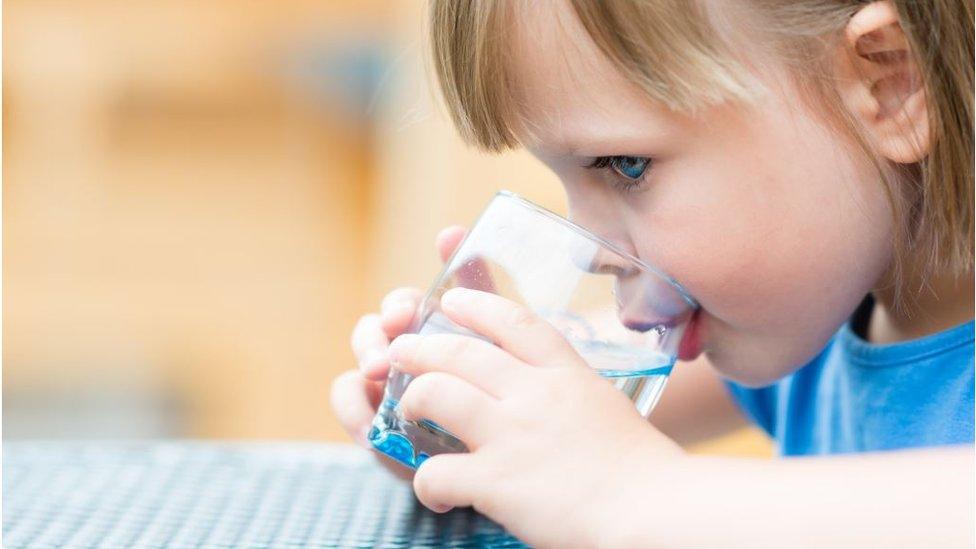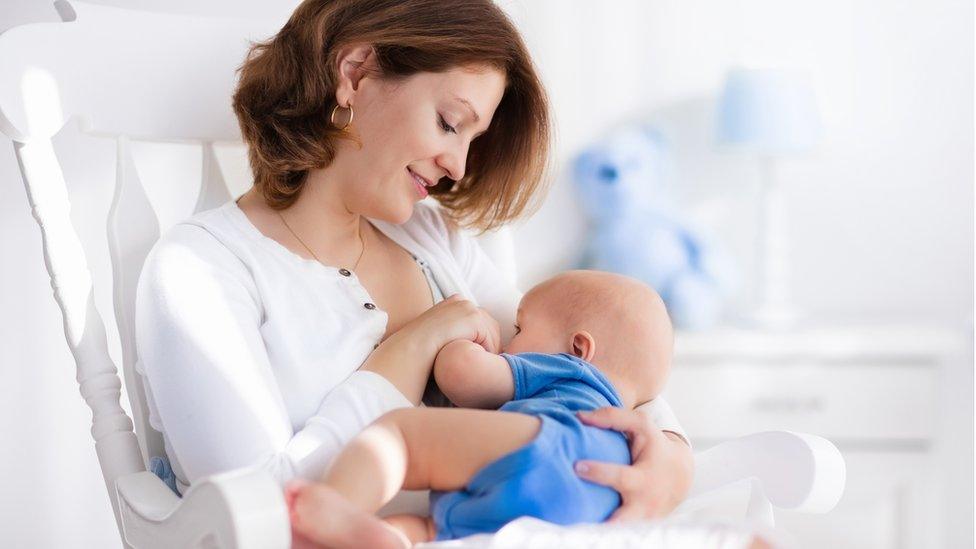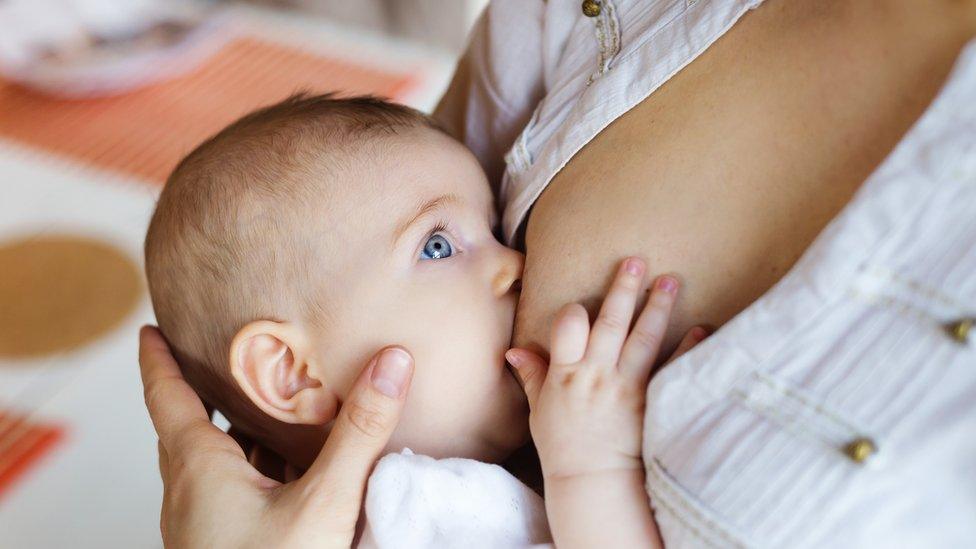Quarter of mums made 'uncomfortable' breastfeeding in public
- Published

Mothers are still being made uncomfortable about breastfeeding in public
More than a quarter of new mums surveyed say they've been made to feel uncomfortable when breastfeeding in public.
Its been illegal in Scotland for over a decade to prevent children under two being breastfed in a public place.
But the Scottish Maternal and Infant Nutrition Survey, external has found some women are still being asked not to feed their babies when they are out.
The Royal College of Midwives says it is a concern that women are worried.
About 8,000 pregnant women and mothers of babies up to one year old took part in the Scottish government survey into nutrition.
Results suggested mothers across Scotland are breastfeeding their infants for longer periods.
It found 43% of mums are continuing to breastfeed up to six months after birth, compared to 32% in 2010.
This follows a number of Scottish Government programmes aimed at encouraging breastfeeding.
'More to do'
The survey also found many infants are being introduced to complementary foods later - 46% by at least six months - in a trend that has continued since 2010, which is an important development for helping prevent obesity.
Public health minister Aileen Campbell said: "This survey, the only one of its kind to be carried out anywhere in the UK since 2010, found that there has been welcome progress in encouraging breastfeeding in Scotland.
"The survey also provides insights into where we can do more, particularly in the early days and weeks after birth. It is my aim to ensure our work to increase support in this area for new mothers will continue."
Royal College of Midwives (RCM) director for Scotland Mary Ross-Davie said: "The RCM welcomes this report, which gives us significantly more information about the important issues of maternal and infant nutrition in Scotland.
"The report shows there is still work to do to support women in Scotland to improve their health before they become pregnant.
"I am encouraged to see the numbers of women wishing to breastfeed and successfully breastfeeding continues to increase in Scotland. However, inequalities between the least and most deprived women in our society persist, with women living with deprivation least likely to breastfeed."

Nearly three in ten mothers gave their babies treats like chocolate every day
But the midwives' leader was disappointed in social attitudes to breastfeeding.
She added: "It is of concern that around a quarter of women still describe being made to feel uncomfortable when needing to breastfeed their baby in a public place in Scotland.
"It is up to us all to ensure that women feel able to go about their daily lives with their babies and feed them when they need, wherever that be. No woman should feel concerned about leaving the house with their baby because they are worried about where and when they can feed their baby."

Water is the only recommended drink after milk
Despite legal protection, 3% reported that they had been asked either not to breastfeed, or stop breastfeeding, in a certain place.
'Treats and tea'
The study also found that nearly three out of 10 mothers (29%) of babies aged between eight and 12 months gave their infant "treats" - such as chocolate buttons, ice cream, crisps or cheese puffs - at least once a day.
In addition some parents were giving babies drinks not recommended for such young children, including 3% who were giving their babies tea.
Tap water is the only recommended alternative to breast or formula milk outside of meals for babies aged between six and 12 months.
Liberal Democrat equalities spokesperson Caron Lindsay - who was a breastfeeding counsellor - said: "It's fantastic to see the numbers of women interested in breastfeeding are on the rise, but it's troubling that levels of deprivation continue to play a role in dictating their choice.
"It's incredibly important that all women who choose to breastfeed have access to high quality information and support.
"We know that breastfeeding helps reduce long term health inequalities so it is vital that this high quality support is provided."
- Published19 June 2017

- Published5 August 2017
